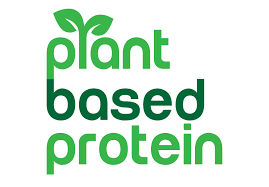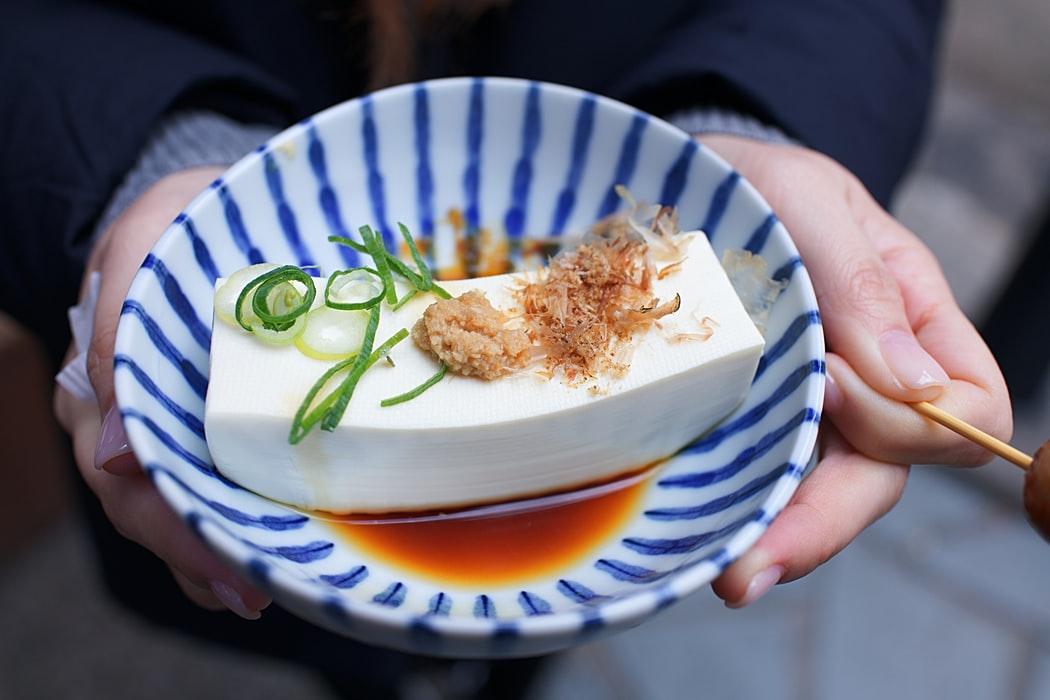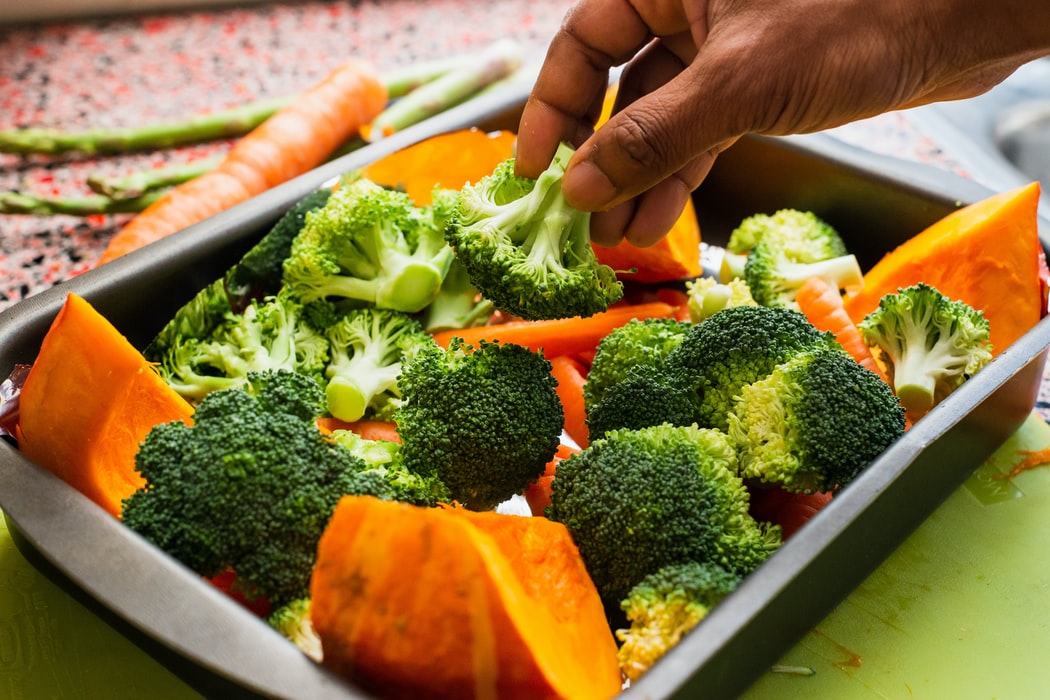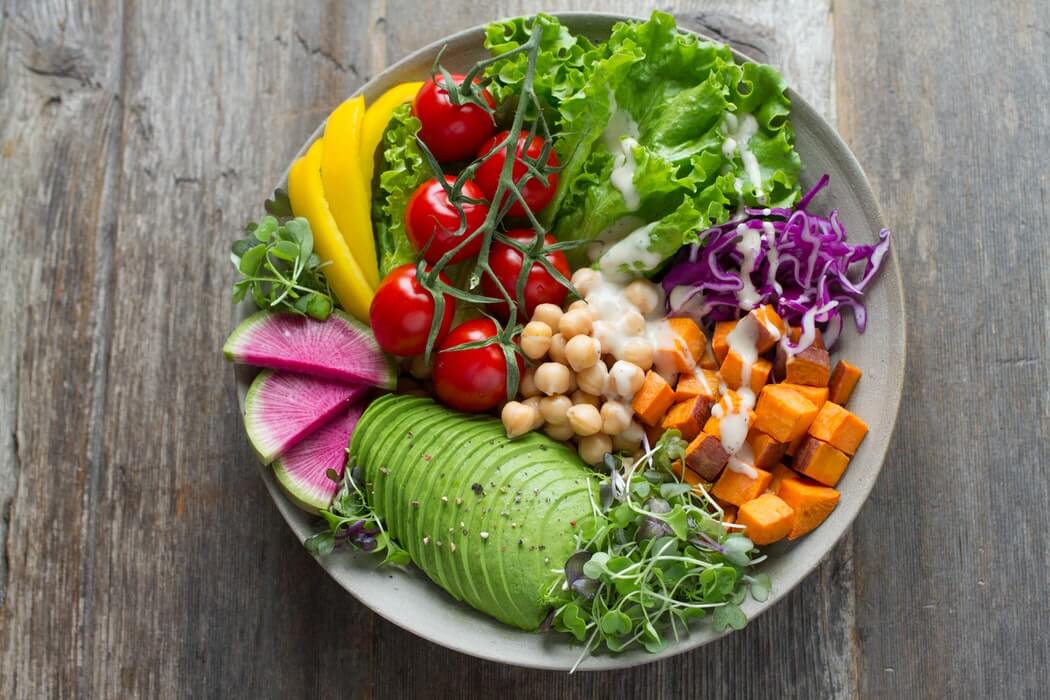Last updated on March 18th, 2024
Are you a vegan or vegetarian who is seeking some amazing protein-packed foods? If yes, you should know that there are zillions of plant-based protein foods under the plant-based diet available across the globe. One can pick from a varied range of animal cruelty-free products that are amazing to eat in everyday meals.
Often people feel that they will not get the right amount of proteins from plants, but that’s a myth. For most people, the daily need for protein is about 0.8 grams per kilogram, and that can be easily achieved by eating some right plant-based foods.
Therefore, for your convenience, here are some of the best plant-based foods packed with protein and enriched with other nutrients.
And, to know more about the daily dietary intake requirement of protein for different people, go through this guide:
Protein Benefits & Requirements (+ Ayurvedic Resources of Protein-Rich Foods)
Frequently Asked Questions About Plant-Based Diet
1. What is a plant-based diet?
The plant-based diets are focused on foods that are derived from plants. It includes a varied range of foods such as fruits, veggies, nuts, whole grains, oils, seeds, and beans.
Vegan or vegetarian people are more likely to follow this diet to meet their daily requirements of necessary nutrients, vitamins, proteins, and fats.
Here are some basic principles of a plant-based diet:
- Focused on less processed foods (use an air fryer)
- Avoids animal products
- Eradicates refined foods
2. What can be problems with a plant-based diet and how to avoid them?
Most often, heart and brain problems are linked with plant-based foods, and to some extent, it can be true as well. Furthermore, sometimes the insufficient intake of a plant-based diet can also deprive individuals of their daily requirement of vitamins, proteins, and minerals.
But another side of these problems is that such risks can be conveniently overcome by picking the apt foods for you. Nowadays, there are plenty of foods on a plant-based diet that one can choose from.
Top Plant-Based Protein Food Sources
1. Tofu, tempeh, and edamame (the best plant-based protein sources)
You will always find tofu, tempeh, and edamame on top of the list of plant-based protein-rich foods. These are amongst the richest sources of protein for people strictly following a vegan diet (see).
Yes, you can thank soy for giving us so many options to have our everyday protein without changing our eating preferences.
- Half a cup of Edamame beans or immature soybeans has around 8.5 g of protein.
- Half a cup of soybean curds, also known as firm tofu, contains about 10 g of protein.
- Half a cup of tempeh contains about 15 g of protein.
In addition to this, if you have recently left the non-veg diet to support vegan foods, then you might find it difficult at first to avoid meat. But to satisfy your craving, you can try.
People can try tofu as a meat substitute. It is a vastly popular meat substitute in dishes, such as kung pao chicken and sweet and sour chicken.
2. Chickpeas
In Asian food, Chickpeas and chickpea flour are some of the most loved ingredients. Moreover, it is one of the best foods for vegetarians and vegans to get protein because a half cup of chickpea has 7.25 g of protein.
You can eat them hot or cold as per your desire as they can be cooked in a bucketful of ways. Try making curries and stews, paprika roasted in the microwave, and more. Other options are hummus, a finger-licking sauce/ spread made from chickpea paste.
3. Almonds
A handful of almonds are enough to satisfy your daily need for protein. It offers 16.5 g of protein per half-cup.
Furthermore, it also offers a decent amount of vitamin E, which is super fantastic for the eyes and skin.
4. Peanuts
Another fantastic plant-based protein diet that can fulfil your everyday dose of protein is Peanut. Just a half-cup of Peanut contains 20.5 g of protein, and that is why many people consider it the globe.
Furthermore, it is exceptionally rich in good fats that maintain our heart health.
If you do not want to chew much and want to save energy, peanut butter is a good option. Per tablespoon, you can get 8 grams of protein. You can eat it as toast or can make smoothies too.
5. Lentils (the most affordable plant-based protein)
If you love sprinkling lentils over your meals to enhance the flavours, then you are doing great. Yes, Lentils are a great source of protein and per cooked cup of it contains 18 grams of protein.
Furthermore, one can never get bored from having lentils and can have them almost every day. There is an end number of meals to which one can add this and can enjoy it.
In addition to protein, lentils are enriched with slowly digested carbs. Moreover, a single cup (240 ml) of lentils provides around 50% of your daily fibre intake requirement, which is just amazing!
It’s like killing two birds with one stone, along with plenty of protein, you get the fibre too.
The fibre present in lentils contains good bacteria in your colon, which promotes a healthy gut. There are several diseases which lentils can help with, such as excess body weight, heart disease, diabetes, and cancers.
Some other vital nutrients present in lentils are folate, iron, and magnesium.
6. Beans With Rice (the most loved plant-based protein food in India)
If you love eating rice and beans, then try to consume them in conjunction. Yes, these two make a perfect combination for people seeking protein in a plant-based diet.
Rice and beans eaten separately might not provide that much protein, but together it serves 7 grams of protein per cup. Several dishes consist of beans and rice together and make a protein-packed meal.
7. Hemp seeds
However, you might be hearing about hemp seeds for the first time, but it is also a very high protein source. Yes, it is not that famous compared to chia seeds, but hempseed contains 10 grams of protein per ounce (28 grams).
The protein found in hempseeds is 50% more than in flaxseeds and chia seeds, which might be a fantastic fact for many to know.
Apart from protein, you can also get omega-3 and omega-6 fatty acids, calcium, selenium, magnesium, and zinc from it.
8. Chia Seeds (a plant-based protein for daily life)
Chia seeds are one of the favourite plant-based diets for people seeking protein in everyday life.
It is derived from the Salvia hispanica plant and is a native of Guatemala and Mexico. The fact that 1.25 ounces of Chia seeds comprise 6 grams of protein and 13 grams of fibre makes it the most lovable diet by all.
These incredibly tiny seeds are full of protein and many other essential contents such as selenium and magnesium, iron, selenium, calcium, antioxidants, and omega-3 fatty acids.
The goodness of chia seeds does not end here. It is an excellent water absorbent and turns into a gel-like substance.
Once turned into a gel, you can easily use it in the end number of mouth-watering recipes such as chia puddings and smoothies.
9. Green Peas
If you love grabbing green peas from your garden, then you are on the right track to getting protein. Yes, the yummy peas offer 9 grams of protein per cooked cup, which is a little bit more than a cup of milk.
In addition to protein, a serving of peas contains Vitamin A, C, and K, 25% of your daily fibre, manganese, and folate as well.
Furthermore, these are also fantastic sources of other vital contents for body growth, such as zinc, magnesium, copper, iron, and phosphorus.
10. Protein-Rich Veggies
Vegetables are yet another perfect option for a plant-based diet containing loads of protein. The dark-leafy veggies are packed with protein.
But one has to make sure that they do not consider these veggies as their only protein source because they might not meet your daily dosage.
But if you will use these vegetables as a snack combined with other protein-rich foods, it’s a good option. You can try veggies like:
- Kale: It offers 2 g of protein/per cup
- Broccoli stalk: A medium stalk of broccoli comprises around 4 g of protein
- Mushrooms: Medium (5 ) mushrooms cater 3 g of protein
11. Seitan (the best plant-based protein for vegans)
If you are only a fruitarian or a vegan seeking some fantastic protein sources, then Seitan is something that you need to know. Yes, it is made from gluten, and when you will cook.
The Seitan will resemble and feels like meat. Because of this reason, it is also known as wheat meat, as well as wheat gluten.
Coming to the protein content, it contains, then it is around 25 grams of protein per 3.5 ounces. Hence, it is one of the richest plant protein sources you can grab. The goodness of Seitan does not end here; it is also very rich in iron, phosphorus, calcium, and selenium.
Although you can get Seitan in many general stores around you, if not, then you can also prepare it at home by getting some recipes online. You can enjoy your Seitan in fried, grilled, or sautéed form.
Therefore, one can never get bored with this because it can be incorporated into several recipes.
12. Ezekiel bread
Last but not least, Ezekiel Bread is also a plant-based protein food that one can take if they are on a plant-based diet. It is a fantastic alternative to traditional bread and is made up of millet, wheat, barley, and lentils.
The people who want to enjoy their regular toasts with a twist of added protein can enjoy Ezekiel Bread.
Per slice, you will quickly get 4 grams of protein, and if you add almond butter or peanut butter to it, then the amount of protein will increase. So, you can make your daily toast full of protein meals.
Final words on plant-based protein
Proteins are necessary parts of our diet as the amino acids help build blocks of our body. Furthermore, getting protein in a plant-based diet is not that hard job.
All we have to do is to find the right products. So if you are a vegan & natural, you can consider these foods for your daily protein dose.
You might also like:
- Healthy Warm Pasta Salad Recipe (Vegan)
- 15 Proven Benefits of Cinnamon Tea
- 10 Disturbing Fast Food Facts That Make You Give Up On Junk Foods
- Best Water Purifier in India for Home (Top 10 RO Water Purifiers)
DISCLAIMER: All the information above is a work of our research based on expert advice, scientific studies, and my personal experience. The content in this article is meant to spread awareness and is not intended as a substitute for professional medical advice or treatment. It’s always better to seek the advice of your medical professional or another qualified healthcare provider with any question you may have regarding any health advice






Leave a Reply